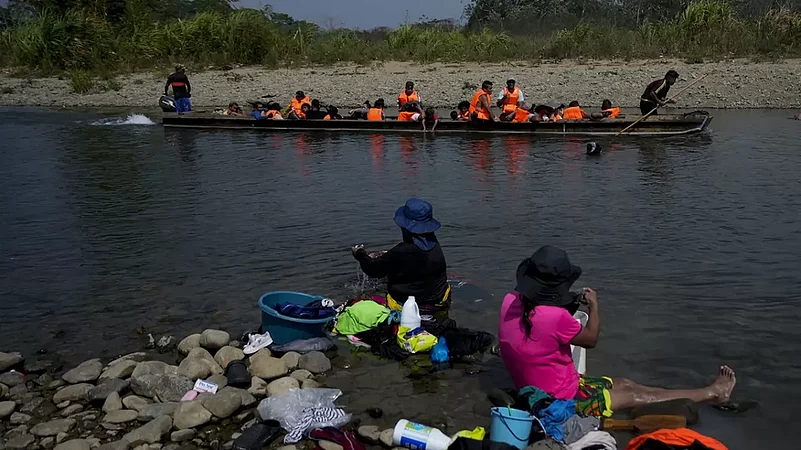A boat carrying minority Rohingya migrants from Myanmar has capsized in the Bay of Bengal, leaving at least 17 people dead and about 30 missing, a rescue official said Thursday. About 55 people were on the boat when it left Buthidaung township in the western state of Rakhine last weekend, said Byar La, general secretary of Shwe Yaung Metta Foundation. Eight people survived the weekend accident in the sea near Sittwe, the capital of Rakhine, he said.
The boat was headed for Malaysia and the exact time and cause of the capsizing were unknown, he said. Byar La said 17 bodies, including 10 women, were recovered along the shore in Sittwe, about 335 kilometres (210 miles) west of the national capital, Naypyitaw, between Monday and Wednesday. The eight survivors were taken away by Myanmar's security forces, he said. Members of rescue teams and the authorities were continuing to search for the missing people, he said.
Rakhine state Attorney General Hla Thein said bodies had been found on the shore since Monday but the exact number and other details were not yet known. “I only heard that the boat had left illegally and capsized in the Bay of Bengal,” Hla Thein said by phone. Rohingya, a Muslim minority, have long been persecuted in Buddhist-majority Myanmar. More than 700,000 have fled from Myanmar to refugee camps in Bangladesh since August 2017, when the military launched a clearance operation against the minority in response to attacks by a rebel group. Myanmar's military has rejected accusations that security forces committed mass rapes and killings and burned thousands of homes in the clearance campaign.
The US government has labelled the military's actions as genocide. More than 100,000 Rohingya remain in Myanmar, confined to squalid displacement camps, in addition to those living in crowded refugee camps in Bangladesh. Groups of Rohingya from camps in both countries have embarked on hazardous voyages to the Muslim-majority countries of Malaysia and Indonesia to seek better living conditions. Myanmar has denied citizenship to most Rohingya. They are also denied freedom of movement and other rights including education. Authorities in Myanmar say the Rohingya migrated illegally from Bangladesh, even though many of their families have lived in Myanmar for decades.





















